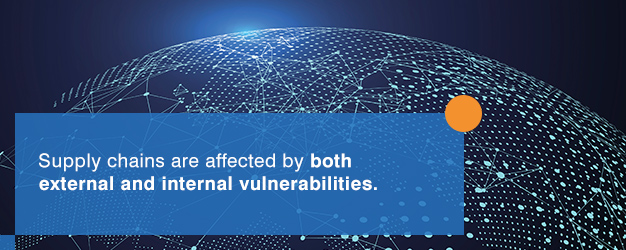ISO Certification for Supply Chain Management

ISO does not have a specific certification standard for supply chain management. However, ISO standards related to various aspects of supply chain management can be used to enhance the efficiency, reliability, and sustainability of supply chain processes. Here are some ISO standards relevant to supply chain management:
ISO 9001 - Quality Management: ISO 9001 provides requirements for a quality management system (QMS) that can be applied to organizations involved in the supply chain. Implementing ISO 9001 helps organizations ensure consistency, reliability, and quality in their products and services, which can contribute to improved supply chain performance.
ISO 14001 - Environmental Management: ISO 14001 provides requirements for an environmental management system (EMS) that helps organizations identify, manage, and reduce the environmental impacts of their operations, products, and services. Implementing ISO 14001 can help organizations enhance sustainability in their supply chain by promoting environmentally responsible practices and reducing waste and pollution.
ISO 45001 - Occupational Health and Safety Management: ISO 45001 provides requirements for an occupational health and safety management system (OHSMS) that helps organizations ensure the health and safety of workers in their operations and supply chain. Implementing ISO 45001 can help organizations manage occupational health and safety risks throughout the supply chain and protect workers from harm.
ISO 26000 - Social Responsibility: ISO 26000 provides guidance on social responsibility, including principles and practices related to labor practices, human rights, community involvement, and fair operating practices. Implementing ISO 26000 principles can help organizations promote ethical and responsible behavior throughout their supply chain and contribute to sustainable development.
ISO 28000 - Supply Chain Security: ISO 28000 provides requirements for a security management system for the supply chain, focusing on security risks and threats that may affect the flow of goods, information, and services. Implementing ISO 28000 can help organizations enhance the security and resilience of their supply chain and protect against security threats such as terrorism, theft, and piracy.
ISO 31000 - Risk Management: ISO 31000 provides principles and guidelines for risk management, including identifying, assessing, treating, and monitoring risks that may affect supply chain performance. Implementing ISO 31000 can help organizations proactively manage supply chain risks and uncertainties, improving resilience and decision-making.
While ISO does not offer a specific certification standard for supply chain management, organizations can use these ISO standards as frameworks to enhance different aspects of their supply chain processes and performance. Certification to ISO standards such as ISO 9001, ISO 14001, ISO 45001, ISO 26000, ISO 28000, and ISO 31000 can demonstrate an organization's commitment to quality, environmental sustainability, occupational health and safety, social responsibility, security, and risk management in its supply chain.
Thank you,